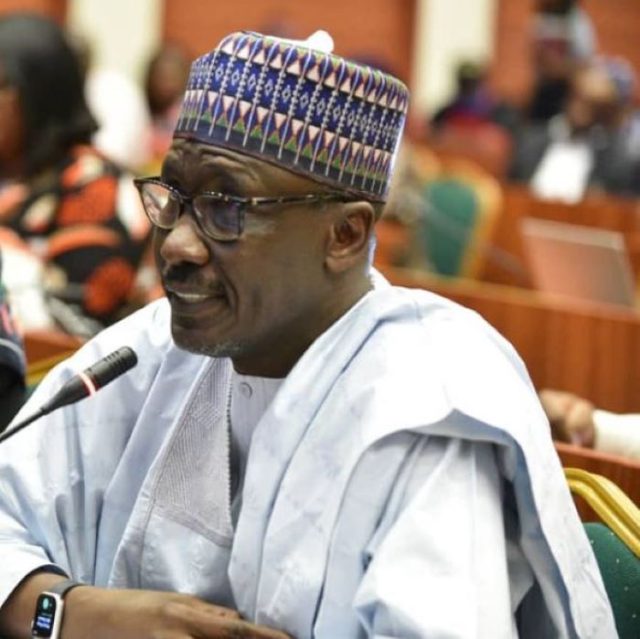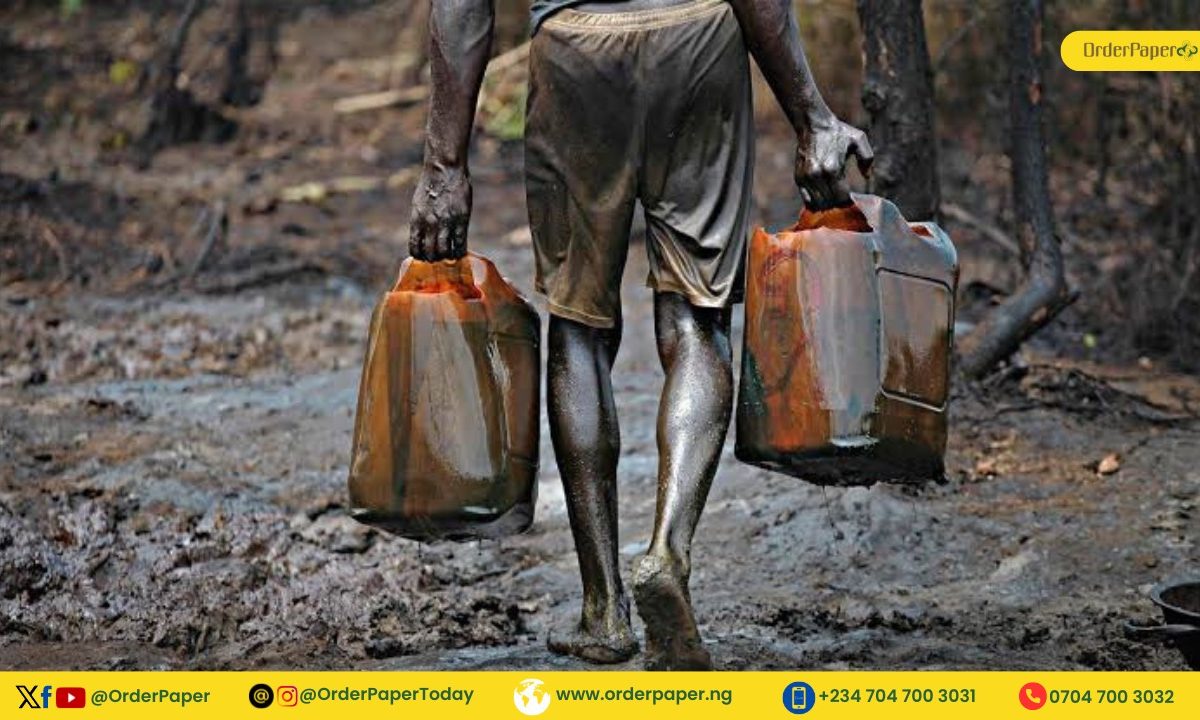NNPC, Now NNPCL, Nigeria’s national oil company has undergone some rapid and significant metamorphosis in the last three years. Here’s why and these are the structural changes you need to know.

Despite the numerous motions to diversify Nigeria’s economy, there has not been a very significant movement away from petroleum as the mainstay. And given that the Nigerian state has been putting its mouth where its money is, the Nigeria National Petroleum Corporation (NNPC) has been a behemoth of all sorts in the making and unmaking of the economic fortunes of the country. It was only after August 2021 that the big elephant in the room started to get some taming to bring Nigeria’s oil and gas industry in compliance with global best practices where a state-owned oil company cannot be both a player and regulator at the same time.
READ ALSO: Reps to probe $60 billion joint ventures by NNPCL
Brief history of the NNPC
In 1956, after the discovery of oil in Oloibiri, Bayelsa State, the Nigerian Oil Corporation (NNOC) was formed. On 1st April 1977, the Nigerian National Oil Corporation (NNOC) and the Federal Ministry of Petroleum and Energy Resources formed a merger that birthed the Nigerian National Petroleum Corporation (NNPC).
Before the Petroleum Industry Act 2021, the old NNPC had a hierarchical structure comprising various levels of management. At the peak of the NNPC’s management structure was the Group Managing Director (GMD), who oversaw the corporation’s activities. The GMD reported to the Board of Directors, which provided guidance and strategic direction.
Below the GMD, were heads of several subsidiaries or strategic business units (SBUs) within the NNPC, many of which have now evolved post-PIA as we will find further down in this article. These SBUs were responsible for various segments of the oil and gas industry, such as exploration and production, refining, marketing, and gas development. The subsidiaries included the Nigerian Petroleum Development Company (NPDC), Nigerian Gas Company (NGC), Petroleum Products Marketing Company (PPMC), and Nigerian Pipelines and Storage Company (NPSC), among others.
Pre-PIA, the NNPC had 19 GMDs, who on average spent about 3 years in office, except Mele Kolo Kyari, who still serves as the current Group Chief Executive Office (GCEO) of the new NNPCL. Listed below are the names of the past GMDs of the corporation:
- Chief R. A. Marinho July 1977 – April 1980
- Chief Odiligi Lolomari Apr 1980 – Aug 1981
- Mr. Lawrence Amu Oct 1981 – Nov 1985
- Mr. Aret Adams Nov 1985 – Apr 1990
- Dr. Thomas John Apr 1990 – Jun 1990
- Mr. Edmund Daukoru Jun 1992 – Oct 1993
- Chief Chamberlin Oyibo Nov 1993 – Aug 1995
- Alh. Dalhatu Bayero Aug 1995 – May 1999
- Dr. Jackson Gaius Obaseki May 1999 – Nov 2003
- Prof. Funsho Kupolokun Nov 2003 – Sept 2007
- Abubakar Yar’Adua Sept 2007 – Jan 2009
- Mohammed Sanusi Bakindo Jan 2009 – Apr 2010
- Shenu Ladan Apr 2010 – 2010
- Augustine O. Oniwon May 2010- June 26, 2012
- Mr. Andrew Yakubu June 2012 – August 2014
- Joseph Thlama Dawha Aug 2014 – Aug 2015
- Ibe Kachukwu July 2015 – Aug 2016
- Dr. Maikanti Baru Aug 2016 – June 2019
- Mele Kolo Kyari June 20, 2019 – Present
READ ALSO: NNPCL has remitted N4.5 trillion revenue in 10 months – Kyari
From NNPC to NNPCL
46 years after the formation of the NNPC, the enactment of the Petroleum Industry Act (PIA) in 2021 brought about significant changes in the structure and operations of the state-owned oil company.
The most significant change is that the PIA mandated the incorporation of the Nigerian National Petroleum Corporation (NNPC) with the Corporate Affairs Commission (CAC). This transition resulted in the establishment of the Nigerian National Petroleum Corporation Limited (NNPCL) within six months from the date of the Act’s passage. Consequently, a new era began in the petroleum industry.
NNPC Comes Under Regulation
By the intent of the PIA, the NNPC which was both a regulator and player in the petroleum industry is now a market competitor alongside international oil companies (IOCs) and other indigenous players in the industry.
Via the PIA, the job of regulation falls on the Nigerian Upstream Petroleum Regulatory Commission (the Commission) and the Midstream and Downstream Petroleum Regulatory Authority (the Authority) independent of the NNPCL. This implies that the NNPCL would operate as a private sector entity, despite being currently wholly owned by the government.
READ ALSO: Oil Theft: NNPCL uncovers 4,800 illegal connections in 5,000 pipelines
Governance of NNPCL
- Appointment of Chief Executive Officer and Board members:
The Petroleum Industry Act (PIA) provided that NNPC Limited shall have a Board that shall perform its duties by the PIA, CAMA, and the Articles of Association of the Company. The Board shall comprise of:
- a non-executive chairman;
- a chief executive officer;
- a chief financial officer;
- a representative of the Ministry of Petroleum not below the rank of director;
- a representative of the Ministry of Finance not below the rank of director; and
- six non-executive members with at least 15 years post-qualification cognate experience in petroleum or any other relevant sector of the economy.
These appointments were effected by the President as required under Section 59 (2) of the Petroleum Industry Act. The NNPC Limited has been administered under a new structure with the group managing director taking on the role of group chief executive officer in line with the provisions of the PIA.
According to the Company and Allied Matters Act (CAMA) 2020, directors may not serve on the board of more than five (5) public companies at a time. On its disclosure obligations, NNPCL is now expected to ensure that information on the Memorandum and Articles of Association of the company is accessible to the public and potential investors.
Its records of the minutes of the meeting where the first directors are appointed, board resolutions for the nomination of the Chairman e.t.c are in the public domain to ensure complete transparency and fulfill all international best practice disclosure obligations.
READ ALSO: CORRUPTION: Sanusi blames NASS, blasts NNPC
The 20 Subsidiaries of NNPCL
There are currently 20 subsidiaries in the NNPCL. The company collapsed some of its subsidiaries in a bid to assume its new status as a commercially driven business entity.
National Petroleum Investment Management Services (NAPIMS) has been renamed as the NNPC Upstream Investment Services (NUIS). Also, a number of the company’s business units and subsidiaries have now been merged.
With the development, NUIS has now added a segment of the erstwhile Crude Oil Marketing Division (COMD), while the Nigeria Petroleum Development Company (NPDC) has been restructured and renamed NNPC Exploration and Production Limited (NEPL).
Furthermore, to adjust to its new operations under the Petroleum Industry Act (PIA), Integrated Data Services Limited (IDSL), NNPC Oilfield Services Ltd, and Frontier Exploration Services have also been merged to form NNPC Energy Services Ltd under the new nomenclature, NNPC Energy Service Ltd (EnServ).
The National Engineering and Technical Company (NETCO) is now a full-fledged Engineering, Procurement, and Construction (EPC) company under the brand name NNPC Engineering & Technical Company (NETCO).
For Gas and Power activities, these three subsidiaries- NNPC Gas Infrastructure Company (NGIC), NNPC Gas Marketing Limited (NGML), and NNPC Gas & Power Investment Services (NGPIS), have the target and responsibility to unlock stranded gas and increase commercial gas volumes by expanding investments in gas processing and transmission network and access untapped markets to service existing and new gas-based industries, power, and LNG projects.
Also, the NNPC New Energy Limited (NNEL) is saddled with the responsibility to provide sustainable, low-carbon energy solutions for end users through investment, commercial production, supply of carbon neutral fuels, renewable energy such as Solar; Renewable power, Biofuels – Fuel Ethanol, Biodiesel, Biogas, wind etc., while engaging in Greenhouse Gases (GHG) emission reduction projects and services.
For NNPCL’s non-energy activities, it is the NNPC Non-Energy Investment Services (NNIS), NNPC Foundation Limited/Gte, NNPC Academy, NNPC Properties Limited (NPL) and Health Maintenance Organization (HMO) duty to create, deliver and capture value from viable non-core energy business ventures.
As regards the NNPCL’s downstream activities, it is the responsibility of the following under-listed subsidiaries to ensure maximum economic performance and energy supply stability for the domestic market through customer-focused and sustainable business operations:
- NNPC Trading Limited (NTL)
- NNPC Retail Limited (NRL)
- NNPC Shipping Limited (NSL)
- NNPC RefChem Limited (NRCL)
- NNPC Downstream Investment Services (NDIS)
- Nigerian Pipelines and Storage Company Limited (NPSC)
- National Energy Reserve Management Company (NERMC)
READ ALSO: Senate threatens dismissal of NNPCL’s boss
New wine in old skin?
It is clear from the above paragraphs that the NNPCL is structured to run as an independent company based on commercial objectives in line with best practices and standard principles of corporate governance. These are indicators that the NNPCL is primed to compete at the world international level with other major operators in the oil and gas sector.
However, it is worthy of note that the shareholding structure dictates that appointments to the board and management are determined by the executive arm of the federal government. What is the role of the National Assembly in ensuring that the principles of transparency and accountability are upheld by NNPCL? Would the new NNPCL be different from its past largely defined by opacity and insufficient accountability, even to the legislature? This and more are the many questions on the minds of Nigerians.


